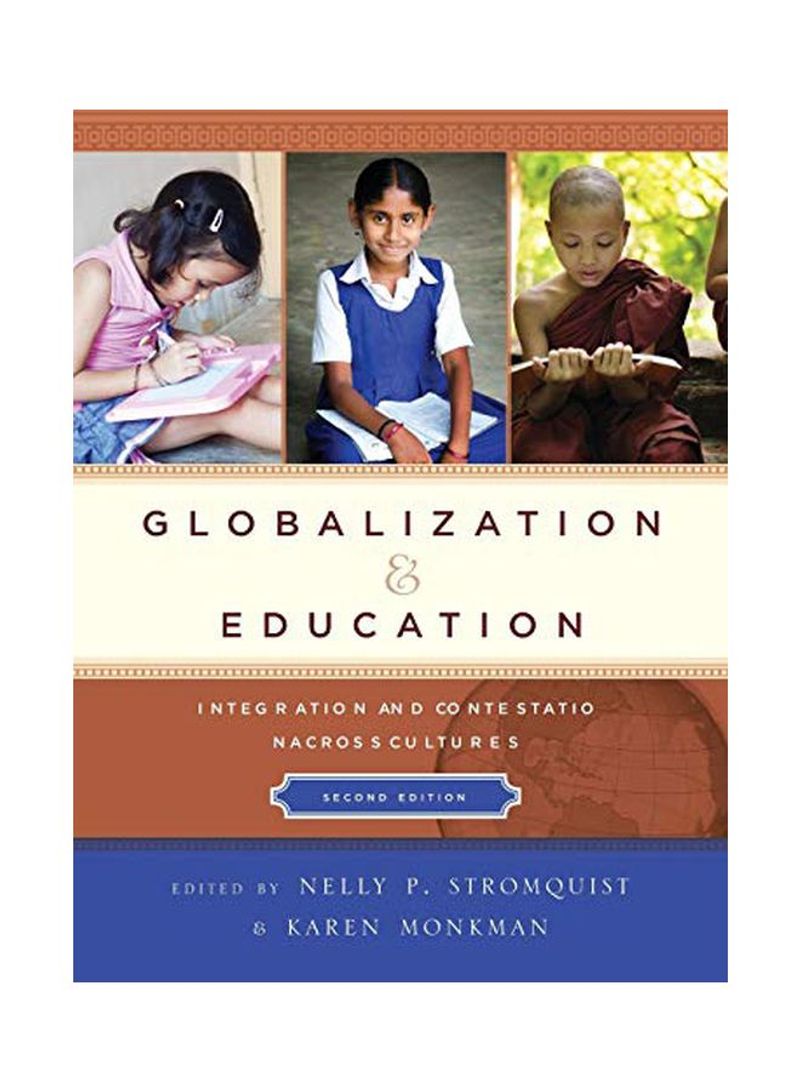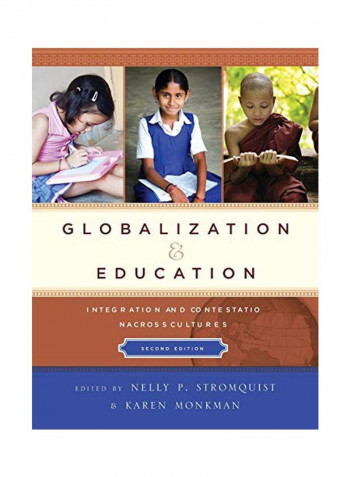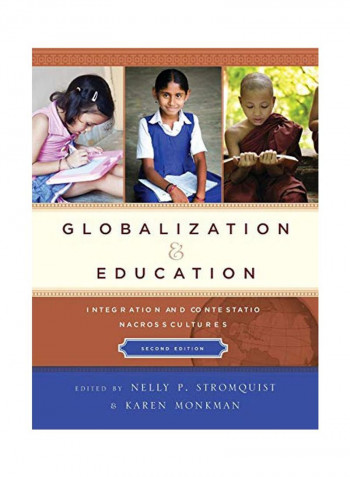Globalization And Education : Integration And Contestation Across Cultures Paperback 2
Recommend
Sort by
Rating
Date
Specifications
Book Description
We offer in this book a collection of chapters that reflect a broad range of issues linking globalization to education in an accessible yet theoretically grounded and detailed form. The authors analyze phenomena on the global plane, in local spaces, and in the connections between the global and the local. New developments such as the growing impact of technology on education, the emergence of new policy actors, the growing expansion and segmentation of higher education, the salience of human rights, among others, are emerging as powerful agendas shaping all levels of education. In fundamental ways, the forces of globalization challenge the previous approaches and theories of national development. Recognizing the areas of convergence, dissonance, and conflict should help us grasp with greater clarity the implications of globalization for education and knowledge in the XXI century. The contributors to this book include both well-known scholars in the field of comparative education as well as young scholars. The chapters present a balanced geographical coverage in terms of authors and the countries/regions examined.The second edition has been thoroughly updated throughout and contains seven new chapters. The expanding interest in the intersection of education and globalization has brought up several new topics, including: the salience of global education policies, notably EFA; the expansion and differentiation of higher education; the emphasis on work-related training; the increasing role of non-state actors such as the transnational corporations; and greater attention to human rights. Also in this new edition is a chapter on qualitative methodologies especially suitable to the understanding of the intersection of globalization and education.
ISBN-10
1475805284
ISBN-13
9781475805284
Language
English
Publisher
Rowman & Littlefield Publishers
Publication Date
04-Mar-14
Number of Pages
332
Editor 1
Nelly P. Stromquist
Edition Number
2
Editor 2
Karen Monkman
Editorial Review
This reissue of Globalization and Education is more than just a second edition, since chapters from the first edition (published in 2000) have been substantially updated and several new chapters added. The editors and many of the contributors have been co-operating on this topic for many years; hence, the book reflects a prolonged extensive contemplation about the complexities of the topic, which undoubtedly contributes to the book's depth and scope. Consequently, we have an accurate large volume, primarily from the field of comparative education studies, which explains some of the most relevant attributes and characteristics of the subject of included studies, which also sheds light on actual developments on all levels of education. . . .This multifaceted book presents yet another case of a larger cooperative educational study, which proves that the end of the neoliberal epoch is highly desired and as much as possible projected in the area of education. Recalling the tradition of the Enlightenment, one may say that educators and philosophers are again emphatically encouraged to invent humanity anew. * International Review of Education * Nelly P. Stromquist and Karen Monkman have revisited two decades of pedagogical and political debates about the dynamics of the global and the local in education to produce a thorough, lucid, and significant book. The editors assembled a diverse and highly qualified group of scholars that have contributed the most engaging, vivid, and in-depth discussions of key contemporary educational issues, ranging from models of understanding globalization to multiple forms of discrimination occurring in schools, and to ways of inquiring about global processes in different regions of the world. Globalization and Education is a treasure trove of the best research and wise thinking that should find its place in the toolbox of educators and scholars trying to understand how global and local dynamics are changing education in the 21st Century. -- Gustavo E. Fischman, professor, Arizona State University The book presents noted scholars who share an actor-driven and network-based understanding of globalization. Rather than seeing globalization as an external, coercive force that turns national and local actors into passive recipients and implementers of international "standards" and "best practices," the contributors disentangle the concept and analyze in fascinating ways what globalization means and does to educational development in different contexts and countries. -- Gita Steiner-Khamsi, professor, Teachers College, Columbia University, New York I welcome the second edition of Globalization and Education: Integration and Contestation Across Cultures. Stromquist and Monkman put together a brilliant constellation of stars of comparative and international education. This book, written by 21 women and four men is full of ideas, concepts, and solid arguments that help us to better understand the dialectic between local cultures and globalization in its relation with educational systems. -- Carlos Ornelas, professor, Autonomous Metropolitan University, Mexico City This reissue of Globalization and Education is more than just a second edition, since chapters from the first edition (published in 2000) have been substantially updated and several new chapters added. The editors and many of the contributors have been co-operating on this topic for many years; hence, the book reflects a prolonged extensive contemplation about the complexities of the topic, which undoubtedly contributes to the book's depth and scope. Consequently, we have an accurate large volume, primarily from the field of comparative education studies, which explains some of the most relevant attributes and characteristics of the subject of included studies, which also sheds light on actual developments on all levels of education. . . .This multifaceted book presents yet another case of a larger cooperative educational study, which proves that the end of the neoliberal epoch is highly desired and as much as possible projected in the area of education. Recalling the tradition of the Enlightenment, one may say that educators and philosophers are again emphatically encouraged to invent humanity anew. * International Review of Education *



